Hypertrophic Cardiomyopathy in Cats Symptoms
Feline hypertrophic cardiomyopathy (abbreviated as HCM) is a serious condition that causes a thickening of the muscular walls of a cat’s heart. Hypertrophic cardiomyopathy in cats impacts the efficiency of the heart, leading to a series of other symptoms elsewhere in the body.
Hypertrophic cardiomyopathy symptoms in cats vary depending on the severity and the specific genetic mutation present. Often, the condition is diagnosed by a veterinarian when they detect an irregular heartbeat or murmur during a routine examination.
Cardiomyopathy in cats symptoms include:
- Shortness of breath and labored breathing
- An increase in respiratory rate
- Lethargy
- Changes in behavior
- Loss of appetite – also see kidney disease
- The sudden loss of function in one or more legs
- Collapsing due to irregular heartbeat
- Stroke
In very rare cases, acute cardiomyopathy in cats can cause sudden death.
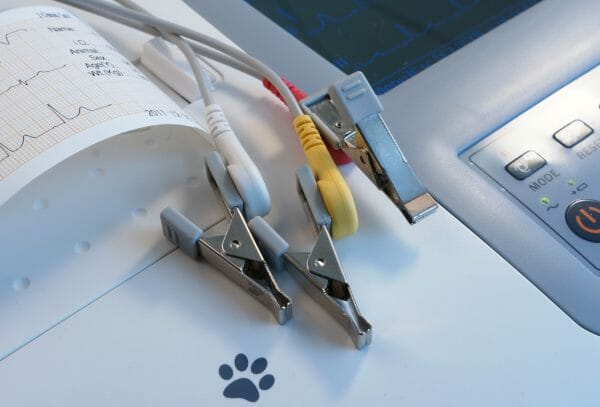
What Is Hypertrophic Cardiomyopathy in Cats?
When a cat has HCM, the walls of the left ventricle of the heart (which is the primary pumping muscle) become thicker. This leads to the volume of the heart chamber decreasing and causing abnormal relaxation of the heart muscle.
The heart will then start beating faster, oxygen use will increase, and the condition can potentially bring about the starvation of oxygen in the heart muscle. All of this can lead to the death of heart cells, worsen the function of the heart, and create arrhythmias (irregular heart rhythm).
Along with HCM, there are several different types of heart disease that affect cats. Types of cardiomyopathy disease in cats are as follows.
- Dilated cardiomyopathy in cats is when the muscular walls of the heart become thinner and are unable to effectively contract.
- Restrictive cardiomyopathy in cats involves fibrosis of the heart’s walls, which causes stiffening and leads to issues filling the chambers.
- Intermediate cardiomyopathy is a condition where more than one type of heart disease is present.
- Hypertrophic obstructive cardiomyopathy in cats involves the thickened muscles or abnormal movement of the anterior leaflet of the mitral valve partially obstructing blood flow from the outflow tract on the left side of the heart.
If left untreated, HCM will cause congestive heart failure. When a cat has heart failure, fluid may fill its lungs (pulmonary edema) and surround them (pleural effusion). Although rare, fluid may also be present in the heart sac.
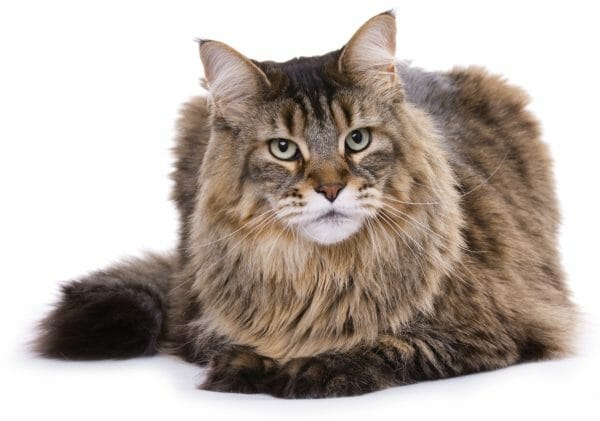
What Causes Hypertrophic Cardiomyopathy in Cats?
Very often, the exact cause of HCM remains unknown. Sometimes, the condition is secondary to another disease. A veterinarian will need to investigate further to find the root cause. Some of the potential cardiomyopathy in cats causes are listed below:
- Nutritional issues
- Deficiency of taurine
- Exposure to dangerous toxins
- Overactive thyroids (hyperthyroidism)
- High blood pressure (hypertension)
- Excessive production of growth hormone (acromegaly)
- A malignant tumor (lymphoma)
Genetics can also be a factor, and there are several breeds of cat prone to cardiomyopathy.
Breeds of Cat with Cardiomyopathy
All cats run the risk of developing heart disease, however, some breeds are genetically predisposed. It is common to find cardiomyopathy in Maine Coon cats, Persians, Sphynx, and Rex cats. There are also links between Russian Blue cats and cardiomyopathy. There is now a blood test for cardiomyopathy in cats that identifies genetic factors.
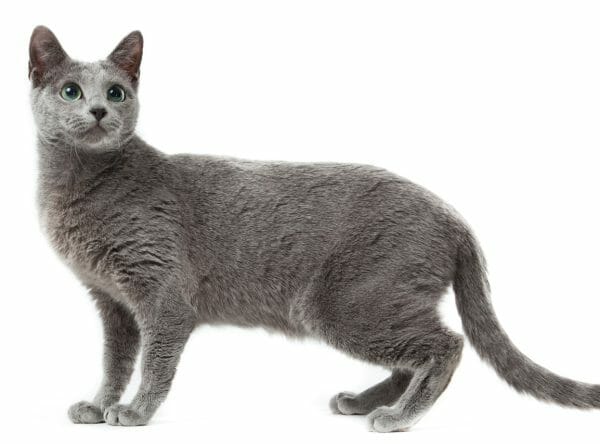
How Is Hypertrophic Cardiomyopathy in Cats Diagnosed?
A veterinarian will diagnose HCM with an X-ray, an electrocardiogram (EKG), or an echocardiograph (a cardiac ultrasound). X-rays are often used during the earliest stages of the disease. With an EKG, a veterinarian can identify disturbances in the heart’s electrical conduction system. Echocardiography technology uses sound waves to map an image of the heart. When HCM is present, the thickened wall of the left ventricle will be apparent.
The problem is that a similar thickening of the heart can also be caused by hyperthyroidism and high blood pressure. The veterinarian will need to rule these out.
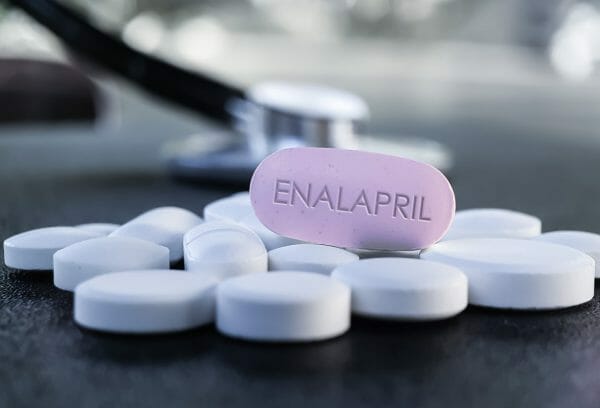
Hypertrophic Cardiomyopathy in Cats Treatment
Treatment is usually palliative as there is currently no way to reduce the thickness in a cat’s heart muscles. The main aim of any form of cardiomyopathy cat treatment is to get the ventricles to fill and to delay or prevent the development of congestive heart failure and arterial thromboembolism.
There are several drugs that a veterinarian may prescribe to relax and slow the heart so that stiff ventricles have time to fill. The type of drugs prescribed will depend on the finding of the ultrasound, whether the cat has congestive heart failure, and the preferences of the veterinarian.
Commonly prescribed medications for HCM include:
- Beta Blockers. These slow down the rate of the heart and reduce its demand for oxygen.
- Diltiazem. Known as a “calcium-channel blocker,” this drug weakens the heart’s contractions, reduces the demand for oxygen, relaxes muscles between contractions, and slows the heart rate.
- Pimobendan. This calcium channel sensitizer increases contraction strength and dilates the blood vessels to improve blood flow.
- ACE inhibitors (angiotensin-converting enzyme inhibitors). These medications include Ramipril, Enalapril, and Benazepril. ACE inhibitors prevent the Renin-Angiotensin-Aldosterone System (RAAS) from activating.
- ARBs (angiotensin receptor blockers). These medications (including telmisartan) prevent the activation of the RAAS hormone system.
- Diuretics. These drugs include furosemide and frusemide. Diuretics are useful for removing the build-up of fluid around the lungs when congestive heart failure develops.
When a cat is at the stage of congestive heart failure, oxygen therapy, nitroglycerine ointment, and cage rest will help maintain stability. Once a cat reaches this point, fluid will accumulate in its lungs.
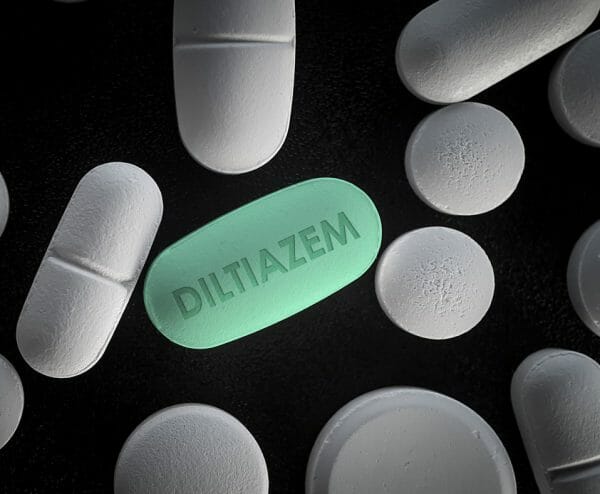
Can Cardiomyopathy Be Cured in Cats?
There is currently no cure for cats with HCM. Owners should be prepared to do everything they can to slow or prevent congestive heart failure from developing.
Cardiomyopathy in Cats Life Expectancy
How long can a cat live with cardiomyopathy? The prognosis for HCM will vary dramatically. Some cats may be symptom-free for many years, whereas others will progress quicker. As mentioned previously, cardiomyopathy disease in cats may result in congestive heart failure. Once at this stage, life expectancy drops to as little as six months. The best prognosis for cardiomyopathy hypertrophic cats is for an early diagnosis. Therefore, cat owners are should ensure their pet has regular veterinarian check-ups.




